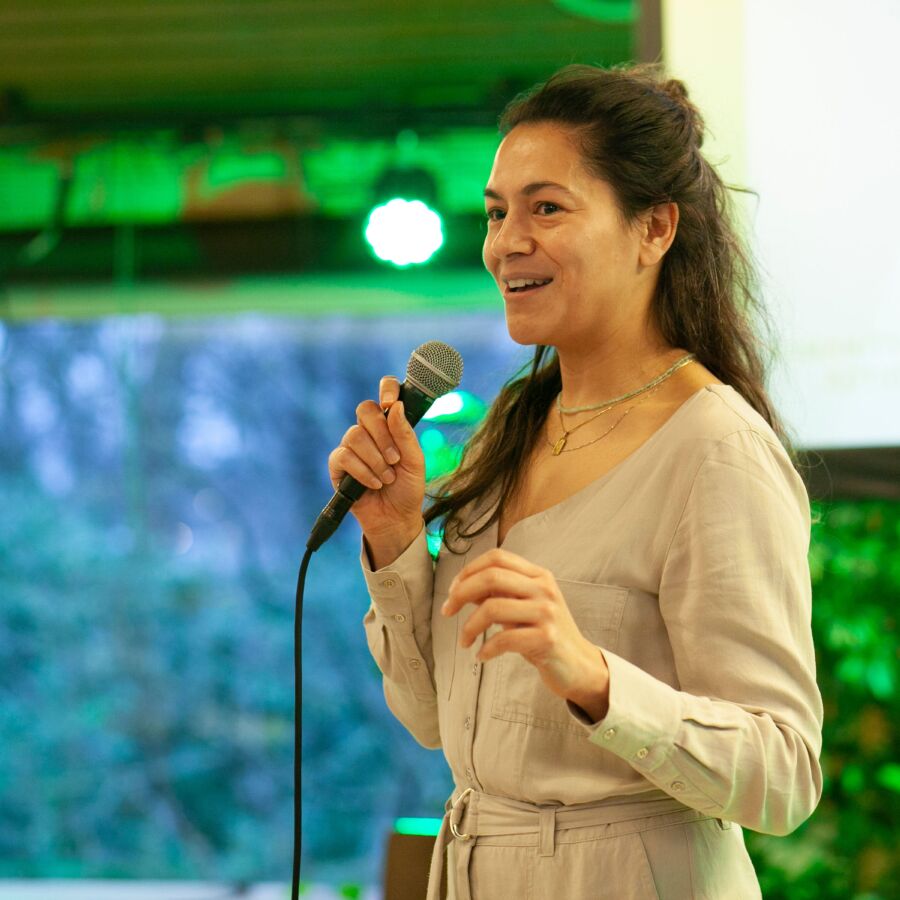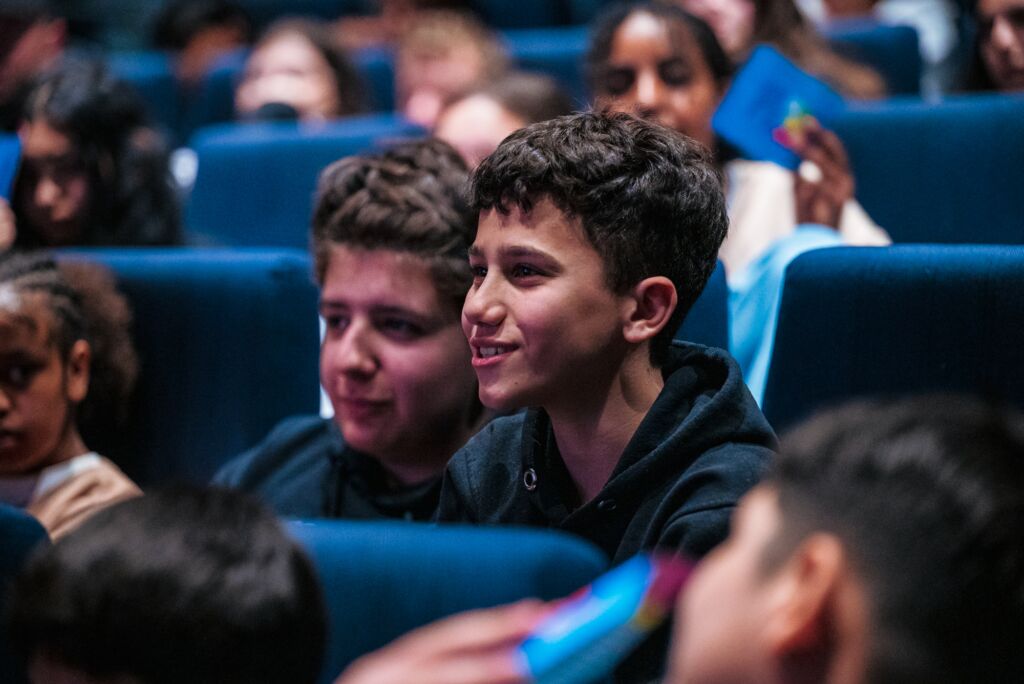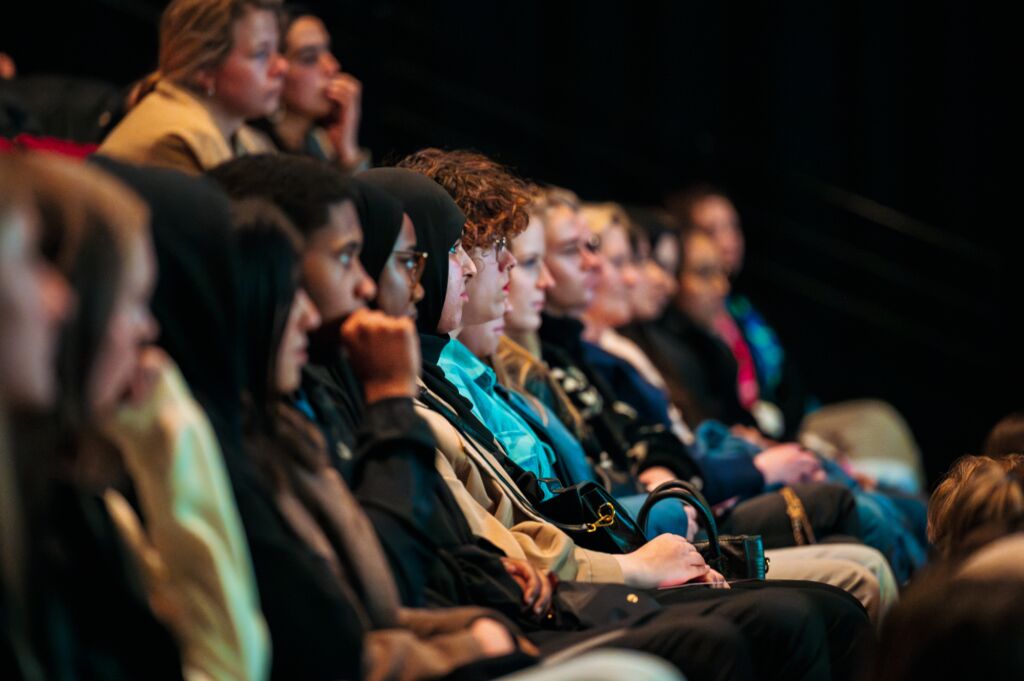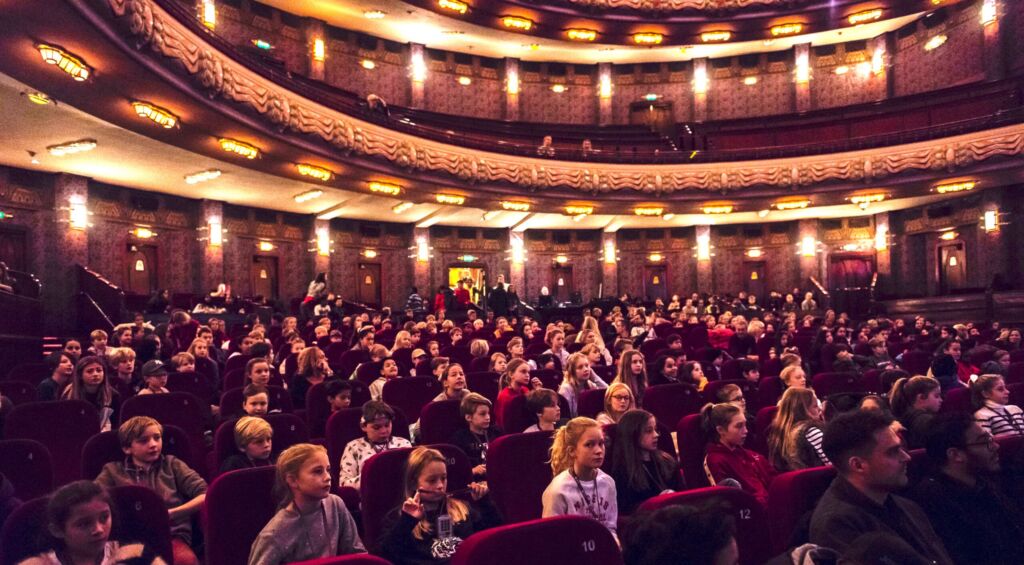Meet the Team: Karlijn Limaheluw
How can a film screening serve as a dialogue starter to introduce students to certain topics? Karlijn talks about her experiences as project coordinator of the education team. 02 November, 2023
Karlijn works as the project coordinator for the education team at Movies that Matter. She lives in Amsterdam, but originally comes from Twente. She started working at Movies that Matter last June, and has background experience in education, human rights and social entrepreneurship.
What do you do at Movies that Matter?
‘As project coordinator, I oversee our education work. The education team mainly concerns itself with three things: Film at school, Film at the cinema and the Education Festival. For Film at school, we offer an online database which contains our teaching materials and through which educators can find a selection of educational films recommended by us. For Film at the cinema, we go through the country with a selection of films for which we have developed an educational programme. Schools can go to these programmes with their students. Finally, we have the education festival in Amsterdam and The Hague, where we also offer various film screenings with follow-up discussions and where we organize various workshops with our partners. So I oversee all of these matters, provide support when necessary and I also think about and write plans for where we want to go with our education programme in the coming years.’

What do you hope for students to take away from a film screening by Movies that Matter?
‘What we aim for as the education team is that all voices in society can be heard. By highlighting specific themes in our programmes, like racism and other forms of discrimination, we hope to make discussions on such socially relevant topics possible. Films are an exceptionally good tool for this, because – and it might sound a bit cliché, but it is true nonetheless – films really speak to the imagination. This makes it easier for young people to connect their personal experiences to the themes discussed in the films. What we hope to achieve by this is to create more empathy, to make difficult themes more understandable, and to create an open and safe space to hold discussions about sensitive topics. And that is also what we are seeing during our film screenings, that after a film screening in a cinema when a follow-up discussion is being held, we often hear surprising and beautiful answers from the students. To be able to personally see the impact films can have, that is something I find very meaningful and which I thoroughly enjoy.’
Why would you recommend a film programme by Movies that Matter to educators?
‘I think it can sometimes be difficult for educators to discuss certain topics in class, for example because the topic does not fall within their own expertise, but also because educators are often already very busy. With these film screenings, we hope to relieve educators at least a little bit by offering them something which connects well to their curriculum and through which attention is paid to socially relevant topics. In this way, a film screening can be a conversation starter for students to become acquainted with certain themes. So with our programmes, we hope to offer something to educators that can be beneficial to their students, but which does not necessarily lead them to have more work at the same time. And we also like to invite educators themselves to participate in the conversation. We always highly appreciate the ideas of educators, so if there are educators who might be interested in working together with us to think about our supply of teaching materials, then please feel free to contact us.’
To be able to personally see the impact films can have, that is something I find very meaningful and which I thoroughly enjoy.

What would you still like to accomplish with Movies that Matter?
‘Within our education team, we are constantly looking for ways to make our programmes more inclusive and accessible, which, on the one hand, means that we want to create more programmes for practical education, international transition classes and mytylschools (schools for students with physical disabilities). And we really want these programmes to align well with the interests and social environments of the students. On the other hand, we would also like to co-create more with students, in which we want to closely look for what students themselves would like to see, based on which we could develop programmes, nationally or during the festival.’
What are you working on in the coming weeks?
‘On the 16th of November it is Universal Children’s Day, for which we have worked hard on developing an interactive film programme for secondary school students and international transition classes. At the moment, we are also working on developing teaching materials for the youth documentary series Children of Mavungu. With this documentary series we offer two screenings in the context of the slavery memorial year. Aside from that, we continue working on our national screenings, developing new teaching materials, and improving our supply of films for Films at school all year-round. Finally, we are also already working on our programming for the festival, which involves thinking about the workshops we want to offer, the partners we would like to collaborate with, etc. Perhaps also good to know: schools can already book tickets for the festival, so if there are educators interested in going to the festival with their students, booking is possible here.’
